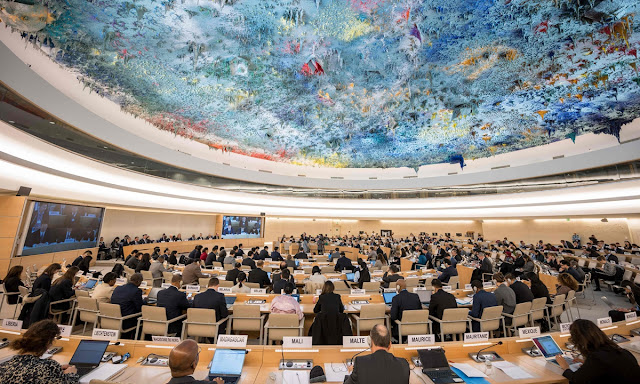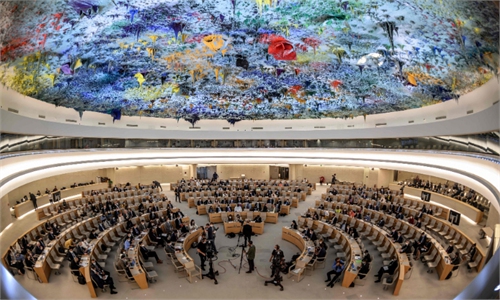Trying times: The tariff would significantly impact manufactures like those in Bayan Lepas, Penang. — CHAN BOON KAI/The Star
JOHOR BARU: The 25% tariff imposed by the United States on Malaysia has sent jitters through the manufacturing sector, with many warning of cancelled orders and a potential wave of business closures.
The furniture industry, for one, fears losing business to Vietnam, which faces a 20% tariff, while some other industries are even thinking of relocating.
Malaysian Furniture Council president Desmond Tan said Vietnam, Malaysia’s closest competitor in the global furniture market, produced a similar range of products and targets the same export destinations – especially the United States.
The tariff for Vietnam was reduced to 20% from the original 46%.
“Since the announcement was only made yesterday (Tuesday), it is still too early to gauge the full extent of its impact on order volumes but the council will continue to monitor developments closely,” he said.
Tan said the industry was also being squeezed by rising costs on the domestic front.
“These include the expanded Sales and Service Tax (SST), which now imposes a 5% tax on raw materials and directly drives up production costs. We also face higher labour expenses with the new minimum wage,” he added.
The new Employees Provident Fund contributions for foreign workers would add further strain while fuel and electricity prices had also gone up, he said.
The council is now urging Putrajaya to commence urgent talks with the United States to negotiate a reduction of the tariff.
He also appealed for a rethink on the new taxes and price hikes to lower production costs, and for export incentives to protect jobs.
The United States accounts for 60% of the country’s total furniture exports, totalling RM2.039bil in just the first four months of the year.
Malaysia also exports furniture to Singapore, Australia, Japan and the United Kingdom, among others.
Muar Furniture Association president Steve Ong said the new tariff was a major blow, as Muar supplied more than RM4bil worth of furniture to the United States in 2024.
It made up 67% of Malaysia’s total furniture exports there, he said.
“The 25% tariff will likely lead to clients cancelling orders and local manufacturers scrambling to stay afloat. This is an urgent crisis,” Ong said.
Another industry player urged the government to act swiftly.
“If nothing is done, a globally competitive industry like ours could shrink or even collapse,” said Goh Song Huang.
“At a time like this, we need clear, steady policies and a government that understands and responds to the real pressures we face.”
In Penang, local industries are bracing for reduced demand with some considering relocation.
“Companies in Malaysia may be forced to shift parts of their production to countries with lower tariffs,” said Malaysia Semiconductor Industry Association (MSIA) president Datuk Seri Wong Siew Hai, adding that higher prices driven by import tariffs tend to suppress global demand.
“When the cost of imported goods rises, demand naturally falls. In the end, everyone along the supply chain, especially buyers of raw materials, will be affected,” he said.
Earlier, it was reported that semiconductor exports would be exempt from the tariffs but it is unclear whether exemptions will remain under the new tariff regime.
“Vietnam’s tariff is at 20%, which gives them a pricing advantage. US buyers may look for cheaper alternatives, putting Malaysian exporters at a disadvantage,” he said.
Federation of Malaysian Manufacturing (FMM) Penang chapter chairman Datuk Seri Lee Teong Li said the 25% tariff would significantly impact exporters to the US.
“It’s a substantial amount. For local manufacturers shipping to the US, it will reduce profit margins. Costs will rise, and customers may start sourcing from other suppliers.
“Even when the 24% tariff was announced in April, it was already a heavy blow. We had hoped for a reduction, not an increase,” he said.
He noted that for now, the strategy was to ship out as much as possible before the Aug 1 deadline.
Meanwhile, the Associated Chinese Chambers of Commerce and Industry of Malaysia (ACCCIM) is urging the government to temporarily lower the expanded SST to 4% to ease the financial burden on businesses and preserve Malaysia’s competitive edge.
Its president Datuk Ng Yih Pyng said the government should reduce the expanded SST rate from the current 6%-8% for the first two years of implementation.
He said businesses, already grappling with higher operational costs driven by multiple government-imposed measures, would now have to face the the tariff headwinds and global uncertainties as well.
https://www.thestar.com.my/news/nation/2025/07/10/govt-urged-to-intervene-as-new-us-tariff-brings-jitters-for-businesses






